API endpoint to get group transfer locations
We added a new Groups API endpoint that returns a list of groups to which you can transfer the current group.
Automatic disabling of failing webhooks
To protect GitLab and users across the system from the potential abuse or misuse of a small few, we’ve implemented a feature to disable webhooks that fail consistently.
- Webhooks that return response codes in the
5xx range are understood to be failing intermittently and are temporarily disabled. These webhooks are initially disabled for 10 minutes, which is extended on each retry up to a maximum of 24 hours.
- Webhooks that fail with
4xx errors are permanently disabled.
All project owners and maintainers are alerted in the app and can investigate and re-enable any failed webhooks.

Improved topic management for administrators with topic merge
Administrators can now merge source topics into target topics. This action deletes the source topic and moves all assigned projects to the target topic. This way, you can eliminate duplicate topics that might only differ in spelling, and keep your projects organized. Thanks to Jonas Wälter for this community contribution.
New App Home for GitLab Slack application
The App Home provides a central location for GitLab to communicate new Slack features and familiarize you with existing ones. As Slack is one of our most heavily used integrations, we’re working to simplify and consolidate functionality such as slash commands and notifications for the GitLab Slack application. The App Home gives us a way to engage directly with you throughout the process!
To ensure your GitLab Slack application is up to date:
- Go to your chat settings.
- Next to your project, select Slack application.
- Select Reinstall Slack app or configure a new Slack integration.
Want to learn more about our plans and weigh in? Visit our Slack epic.
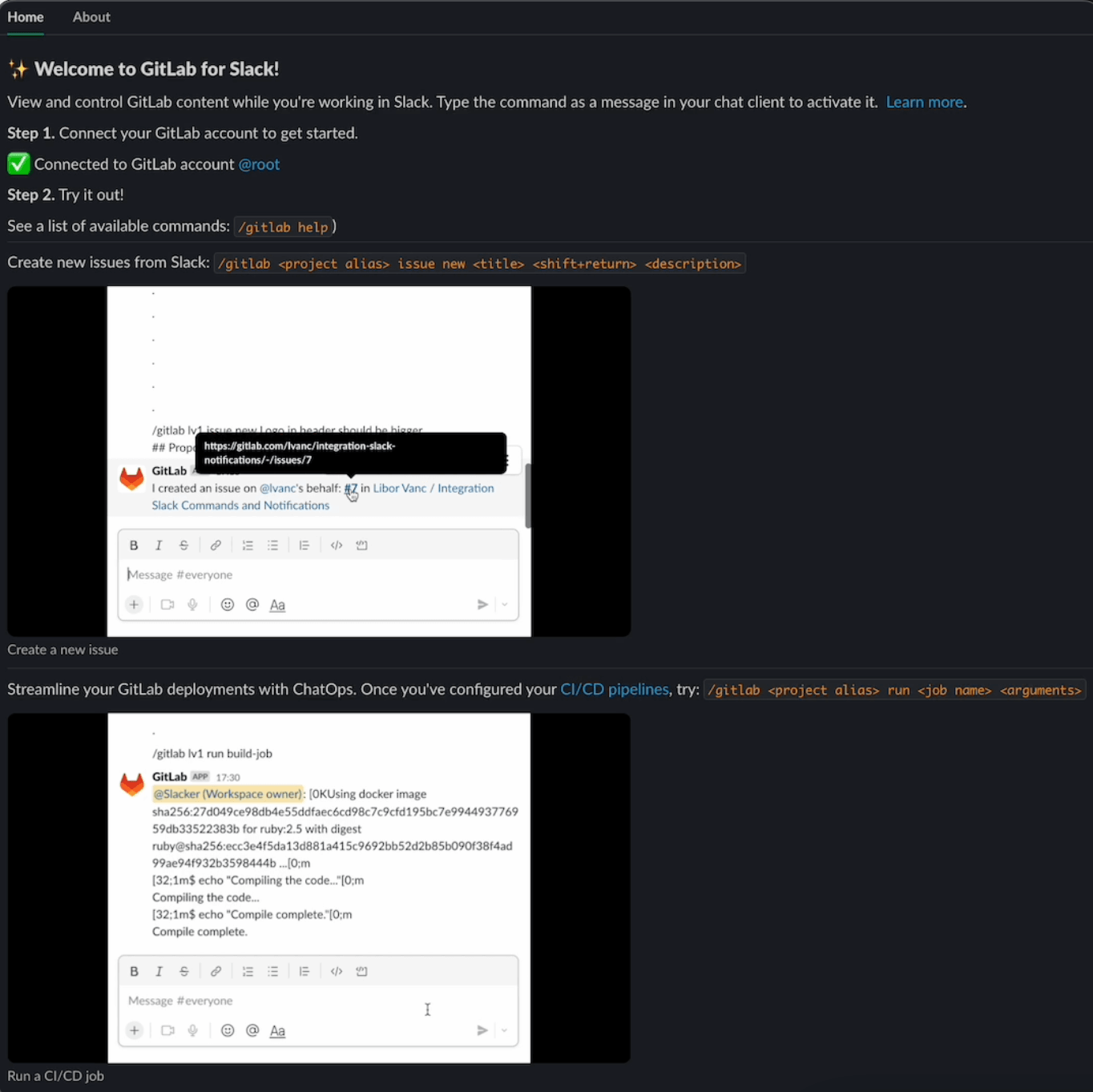
Schedule when to clear status from the user profile page
You can now use the status settings in your profile page to schedule when to automatically clear your status. Previously, you could do this only from the Set status modal.
Streaming audit events custom verification tokens
You can now specify a value to use as the verification token
that streaming audit events use.
This is a great improvement for situations where the value you have to use for validating events is dictated by a third-party system. For example,
if you are sending streaming audit events to a third-party system, and that system requires a specific value, you can now specify the value in GitLab
directly rather than having to see what value GitLab randomly generates and then updating the other system afterwards.
Support for threaded messages in Google Chat
For the Google Chat integration, notifications related to a single issue or merge request are now organized into threads. This contribution from Chetan Sarva reduces the noise and searching required to understand ongoing discussions.
New to the Google Chat integration? Get started with our documentation.

Add assignees to a task
Tasks represent discrete work units necessary to complete an issue.
You can now assign tasks to a single individual in GitLab Free or multiple people
in GitLab Premium or Ultimate. Assigned tasks can be accessed from your personal
issues dashboard and are filterable by assignee from within a project’s issue
list.
Comments on designs save automatically
When you type a comment on a design, it’s now auto-saved, preventing you from losing progress if you accidentally navigate away before submitting the comment.
Manually create, name, and schedule iterations in a cadence
In 15.0, we announced the deprecation of manual iteration management. We received a significant amount of feedback that in certain cases, automated iteration cadence management was not flexible enough.
In 15.4, we’re re-introducing the ability to manually create iterations and providing improved controls for managing the automation settings within a cadence. You can now disable or re-enable automatic scheduling or change the duration and upcoming iterations at any point in time.
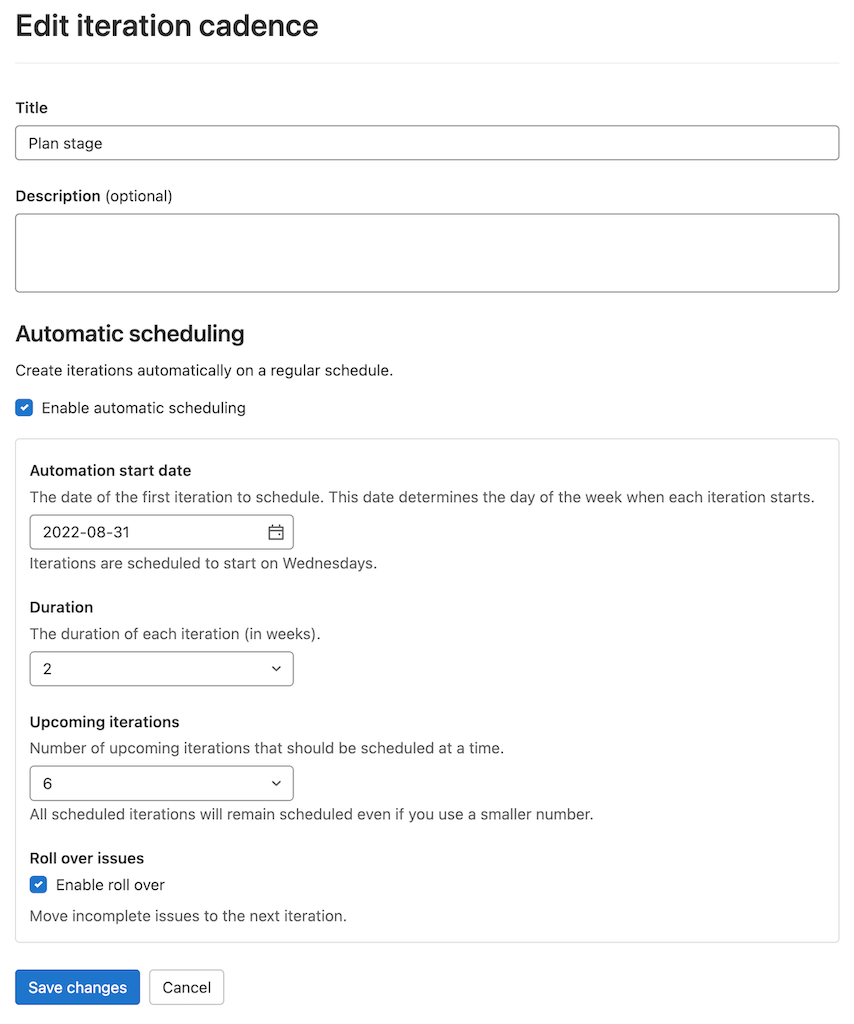
Dedicated page for merge requests and approvals settings
Merge requests and approvals are two of the most used and helpful features in GitLab. Still, in previous versions, you may have had trouble finding the project settings for these features. It wasn’t intuitive or clear that they were in Settings > General.
Now you can more easily find the project settings for merge requests and approvals by navigating directly to Settings > Merge requests.
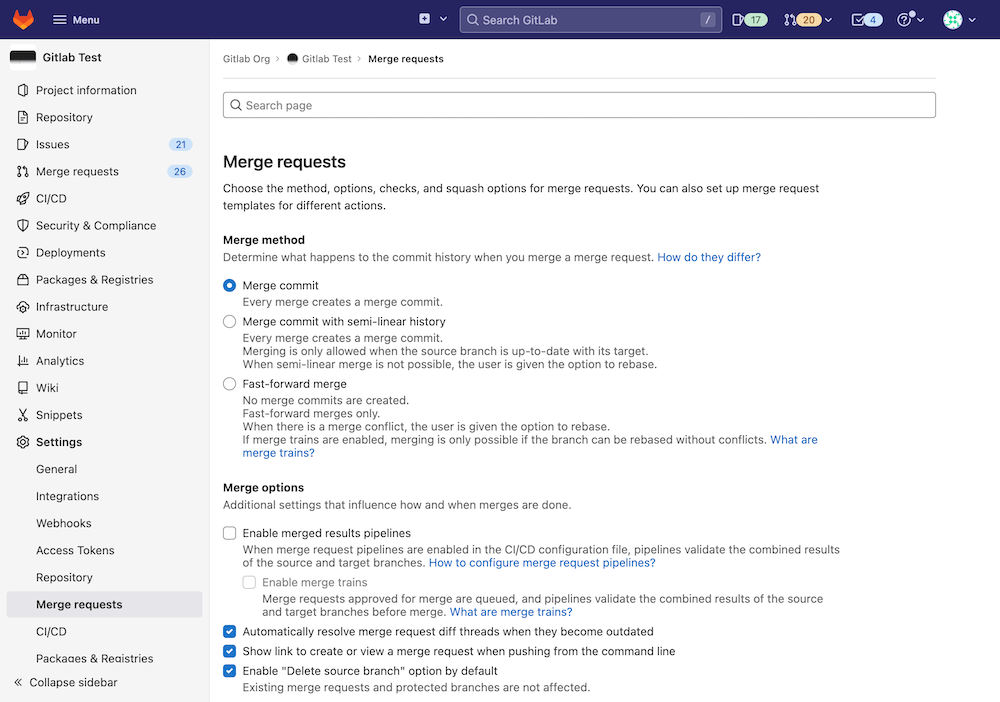
GitLab Runner 15.4
We’re also releasing GitLab Runner 15.4 today! GitLab Runner is the lightweight, highly-scalable agent that runs your CI/CD jobs and sends the results back to a GitLab instance. GitLab Runner works in conjunction with GitLab CI/CD, the open-source continuous integration service included with GitLab.
What’s new:
Bug Fixes:
The list of all changes is in the GitLab Runner CHANGELOG.
Create API endpoint to update a Protected Environment
In this update, we have added a new endpoint for the protected environments API that lets you update the configuration settings. You can use the endpoint for changing who is allowed to deploy and how many approvals are required.
Improvements to the stable Terraform template to avoid breaking changes
The Terraform CI/CD templates provide you with a quick and easy way to integrate your projects with Terraform. However, changes to the gl-terraform wrapper script could introduce breaking changes to even the stable Terraform template. In this release, changes to the wrapper script dramatically reduce the likelihood of breaking changes outside of major releases.
Show the deployment approval comment in the UI
You can now see and track the comments and approvals left by users when reviewing a deployment, providing more context as to why a manual job was approved or rejected. This functionality is also useful for organisations in highly regulated industries that need to audit release events.
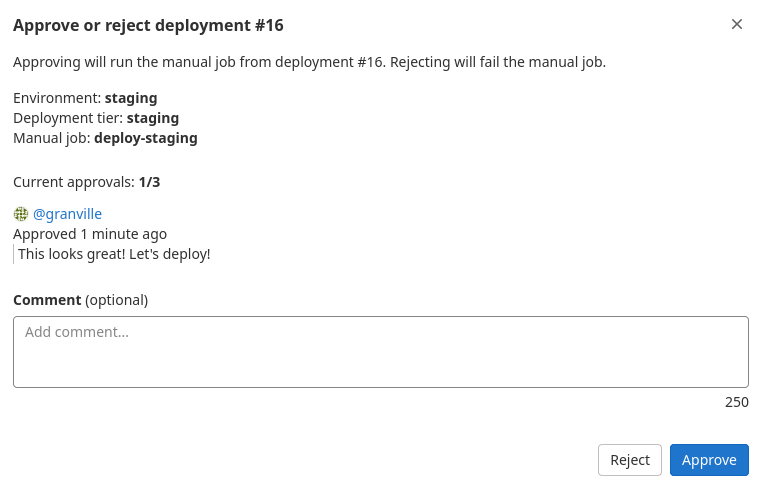
Add an incident timeline event with a quick action
Every second counts when users are working to resolve an incident. In this release, you can use a quick action to add one or more events to the incident timeline.
Faster, easier C# scanning in SAST
GitLab Static Application Security Testing (SAST) now offers Semgrep-based scanning for C# code.
As with the other languages we have transitioned to Semgrep-based scanning, C# scanning coverage uses GitLab-managed detection rules to detect a variety of security issues.
The new Semgrep-based scanning runs significantly faster than the existing analyzer based on Security Code Scan.
It also doesn’t need to compile your code before scanning, so it’s simpler to use.
GitLab’s Static Analysis and Vulnerability Research teams worked together to translate rules to the Semgrep format, preserving most existing rules.
We also updated, refined, and tested the rules as we converted them.
If you use the GitLab-managed SAST template (SAST.gitlab-ci.yml), both Semgrep- and Security Code Scan-based analyzers now run whenever C# code is found.
In GitLab Ultimate, the Security Dashboard combines findings from the two analyzers, so you won’t see duplicate vulnerability reports.
In a future release, we’ll change the GitLab-managed SAST template (SAST.gitlab-ci.yml) to only run the Semgrep-based analyzer for C# code.
The Security Code Scan-based analyzer will still scan code for other .NET languages.
If you have any questions, feedback, or issues with the new Semgrep-based C# scanning, please file an issue, we’ll be glad to help.
Static Analysis analyzer updates
GitLab Static Analysis includes many security analyzers that the GitLab Static Analysis team actively manages, maintains, and updates. The following analyzer updates were published during the 15.4 release milestone. These updates bring additional coverage, bug fixes, and improvements.
- Kics analyzer updated to add additional rules, fix bugs, and update to kics version 1.5.13. See CHANGELOG for details.
- NodeJSScan analyzer updated to version 0.3.3. See CHANGELOG for details.
- Security Code Scan analyzer updated to version 5.6.5. See CHANGELOG for details.
- Semgrep analyzer updated to version 0.110.0. See CHANGELOG for details.
- Secrets analyzer updated. See CHANGELOG for details.
- We’ve fixed a bug that caused a historic scan to be run if the
SECRET_DETECTION_HISTORIC_SCAN CI/CD variable was set at all, regardless of the variable’s value.
- We’ve added a rule to detect leaked GitLab Pipeline Trigger Tokens.
- SpotBugs analyzer updated to use ‘assemble’ task for Gradle projects. See CHANGELOG for details. We thank community contributor
@sbrochet for making this improvement.
If you include the GitLab-managed SAST template (SAST.gitlab-ci.yml), you don’t need to do anything to receive these updates. However, if you override or customize your own CI/CD template, you need to update your CI/CD configurations.
To remain on a specific version of any analyzer, you can pin to a minor version of an analyzer. Pinning to a previous version prevents you from receiving automatic analyzer updates and requires you to manually bump your analyzer version in your CI/CD template.
For previous changes, see last month’s updates.
API support for immediate group deletion
You can now use the API to immediately delete individual subgroups. Prior to this release, you could only delete individual subgroups from group settings in the UI.
Identify bot users with a badge
Previously, it was difficult to visually identify bot users. Bot users now have a Bot badge in the group and members list.
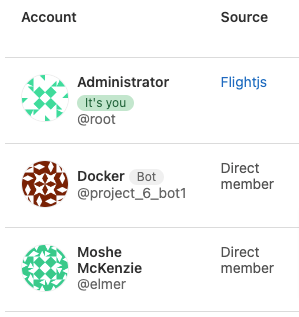
Move group push rules to Settings > Repository
Pre-defined push rules in the left sidebar for groups have been moved and will now appear under Settings > Repository, which mirrors the location of push rules in projects. Group maintainers will still have access to this page.
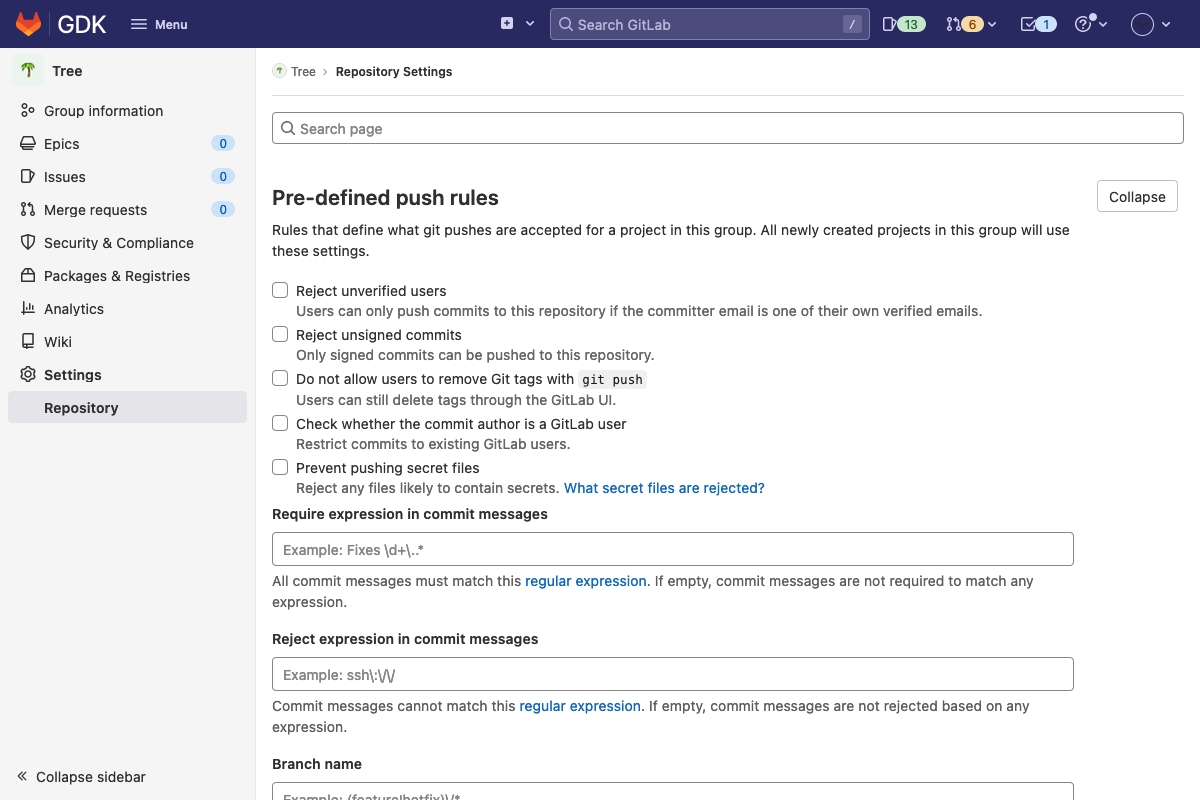
Restrict access to groups using API
Previously, IP address restrictions could only be configured in the GitLab UI. Now, you can add a comma separated-list of IP addresses or subnet masks using the API. This allows you to configure IP address restrictions programatically.
Shimo as a wiki alternative
Shimo is a popular cloud-productivity suite that includes documentation, spreadsheets, slideshows, and whiteboards. With this integration, you can use the Shimo Wiki directly within GitLab.
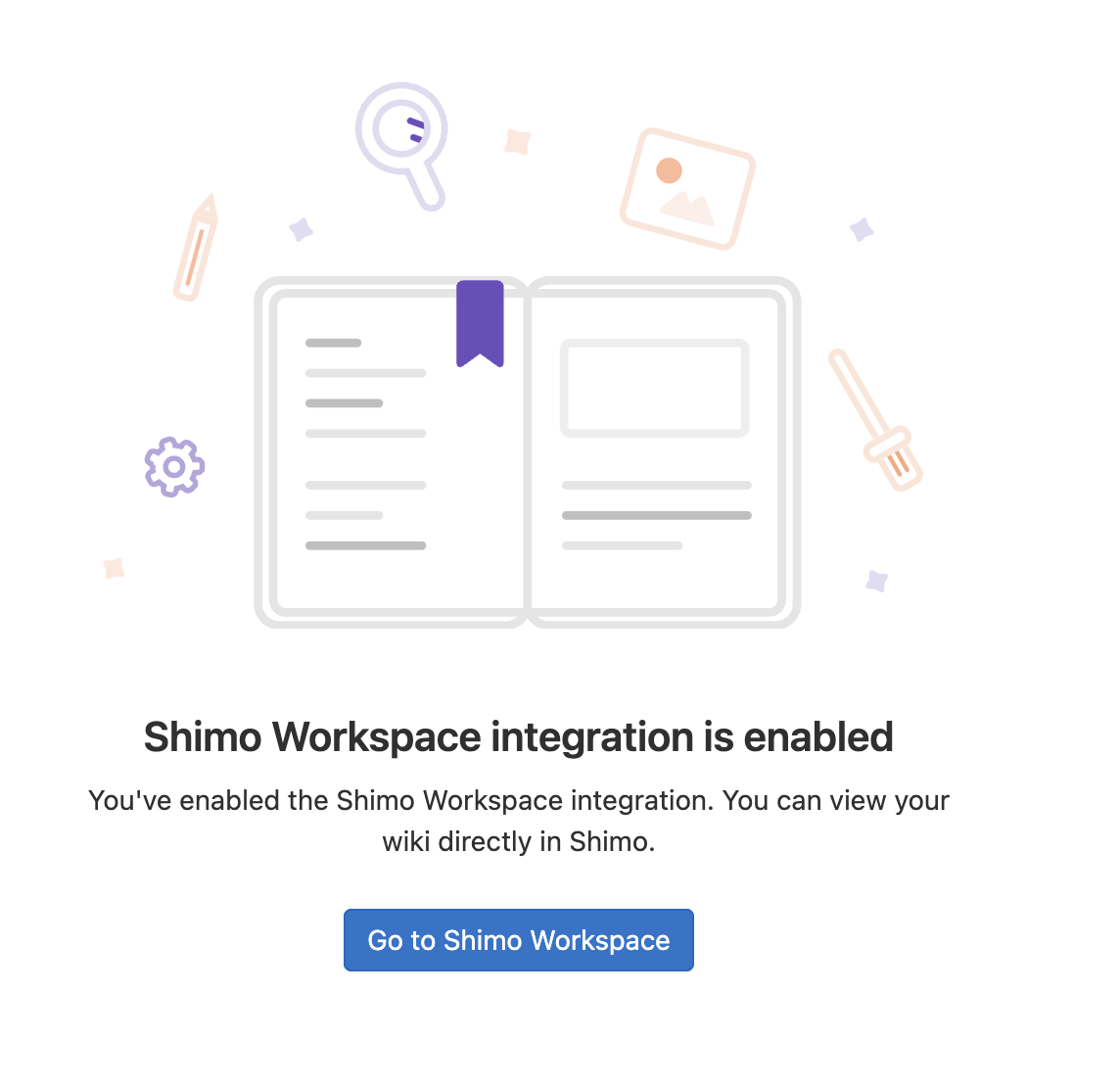
Streamlined sign-in page
The GitLab sign-in page has been redesigned to reduce visual complexity and make the sign-in experience more streamlined.
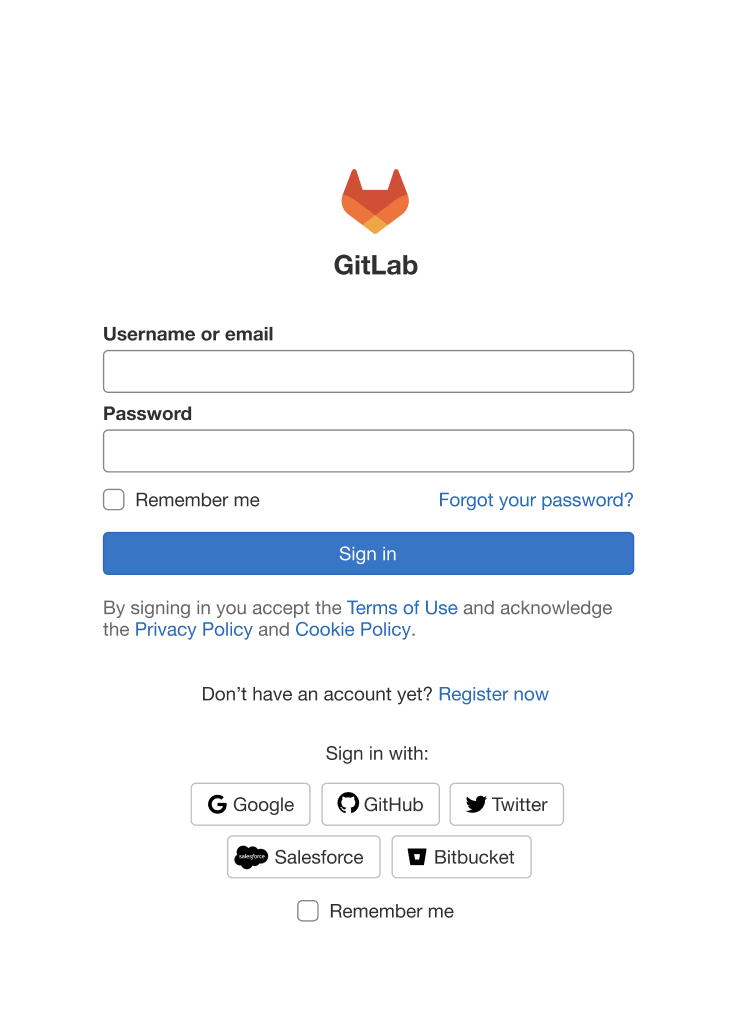
Unified navigational elements in the top bar
The current top bar navigation can be confusing and overwhelming with the number of options that are presented. With this release, we have worked to improve the usability and understanding of this area.
There are 3 ways we focused on improving the usability. First, we reduced confusion around the menu options by arranging them in logical groupings. Second, we removed unnecessary noise by eliminating duplicative navigation items as well as removed the label “Menu” from the button. Finally, to make global search more accessible, we have shifted search to be next to the menu icon. This aligns with our goal of tying search to navigation and helping users get back to the things they are working on.
We’d love to hear your feedback on these updates.
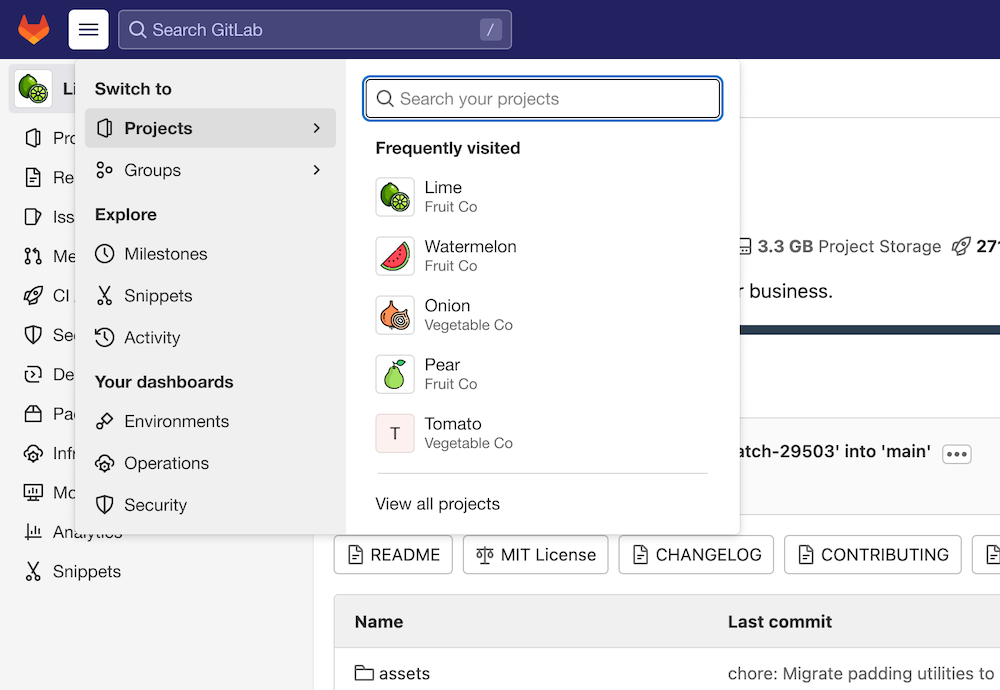
Boards: Display health status on issue cards
You can now see issue health status in boards. Each issue card will show the health status, allowing teams to get an overview at a glance of the health of their team’s work.
GraphQL API endpoint for deleting attachments from project
Project maintainers and owners can now delete attachments in a project through our GraphQL API. This functionality is essential in cases when sensitive data is accidentally uploaded in an image or for managing disk usage for a GitLab instance.
Move cards on a board to the top or bottom of lists
When your board lists have dozens of cards in them, it’s sometimes hard to manually drag an issue from the top to the bottom or bottom to the top. Cards on issue and epic boards now have an action menu with options to move the card to the top or bottom of the card’s current list.

Design improvements to the Admin Area list of runners
The list of runners now uses GitLab’s updated list design standards. If you are a self-managed GitLab administrator, or group owner, critical runner fleet data is now visible. In addition, the new interface elements should help reduce your cognitive load and make the page easier to scan. Instead of text, icons communicate the status, and tags have their own column.

Add associated release link to single tag page
In this update, you can now see the associated release when viewing a specific tag’s information page. This allows you to easily know if a release has been created based on that specific tag and to navigate to the release.
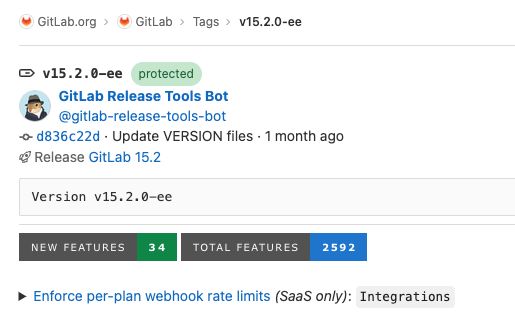
Deploy Helm charts with the agent for Kubernetes
You can now use the agent for Kubernetes to deploy
Helm charts to your Kubernetes cluster.
Until now, the agent for Kubernetes only supported vanilla Kubernetes manifest files in its GitOps
workflow. To benefit from the GitOps workflow, Helm users had to use a CI/CD job to render and commit
resources.
The current release ships with Alpha
support for Helm. Because Helm is a mature product, we consider the
solution performant. However, known issues exist
and the API might change without prior notice. We welcome your feedback in the
related epic, where we discuss
future improvements and next steps.
Show tags related to deployed commit on Environments page
With this update, on the Environments page, you can now easily see tags that are related to deployments and specifically, the deployed commit. This lets you more easily determine what code is currently or has been previously deployed to an environment.
Support variables for environment:auto_stop_in
With this update, you can now use a variable when specifying the lifetime of an environment. This allows you to have more flexibility and dynamic behavior for managing temporary environments and when they should be stopped.
Add timeline events from comments
Incident timelines are an important part of record keeping for incidents. Incident timelines break down what happens during an incident, and the steps taken for the incident to be resolved.
Sometimes comments from the incident are an important event in the timeline of the incident. Instead of manually copying the important comments, you can now select a button to add the comment to the incident timeline.

GraphQL Schema support for DAST API and API Fuzzing
As of GitLab 15.4, DAST API and API Fuzzing support GraphQL schemas for defining what is covered by the test. In previous versions of GitLab, DAST API and API Fuzzing supported testing GraphQL APIs, but the test required a Postman collection or a HAR file to define the test parameters. By supporting the GraphQL schema that is already a part of your API, we can now easily test GraphQL APIs without the need of a separate definition. Depending on which type of test you are configuring, set the DAST_API_GRAPHQL or FUZZAPI_GRAPHQL environment variable to point to the GraphQL endpoint. For applications with introspection enabled, this configures the test to run with the schema as the definition of the test parameters. For applications with introspection disabled, you will also need to set the DAST_API_GRAPHQL_SCHEMA variable to point the test to a schema file.
Streamlined SAST analyzer coverage
We have updated the GitLab SAST CI/CD template to replace the SAST analyzers used for JavaScript, TypeScript, React, Go, Python, and Java with Semgrep-based scanning.
Semgrep-based scanning coverage for each of these languages uses GitLab-managed detection rules to detect a variety of security issues.
GitLab’s Static Analysis and Vulnerability Research teams worked together to translate rules from the previous analyzers to the Semgrep format, preserving most existing rules.
This change is part of our long-term strategy to deliver a more consistent user experience, faster scan times, and reduced CI minute usage.
For more information, refer to the removal notice for this change.
GitLab chart improvements
Omnibus improvements
- GitLab 15.4 includes Mattermost 7.2, with message forwarding for channels and much more. This version also includes security updates, so upgrading from older versions is recommended.
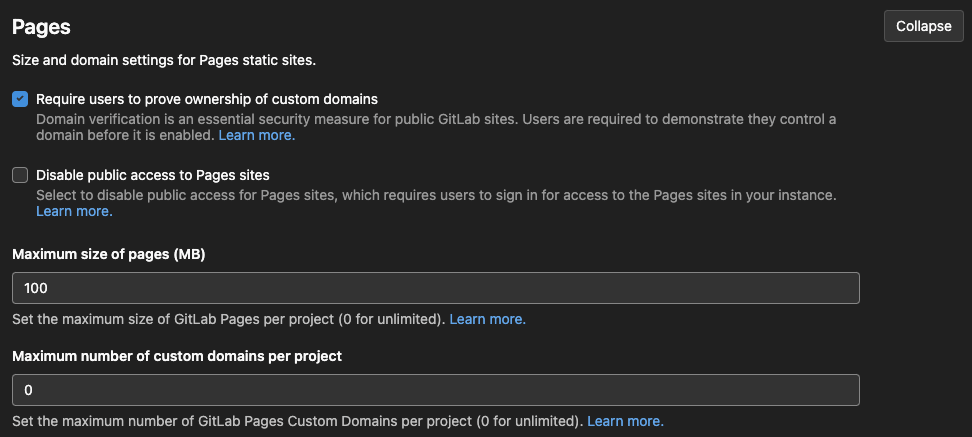
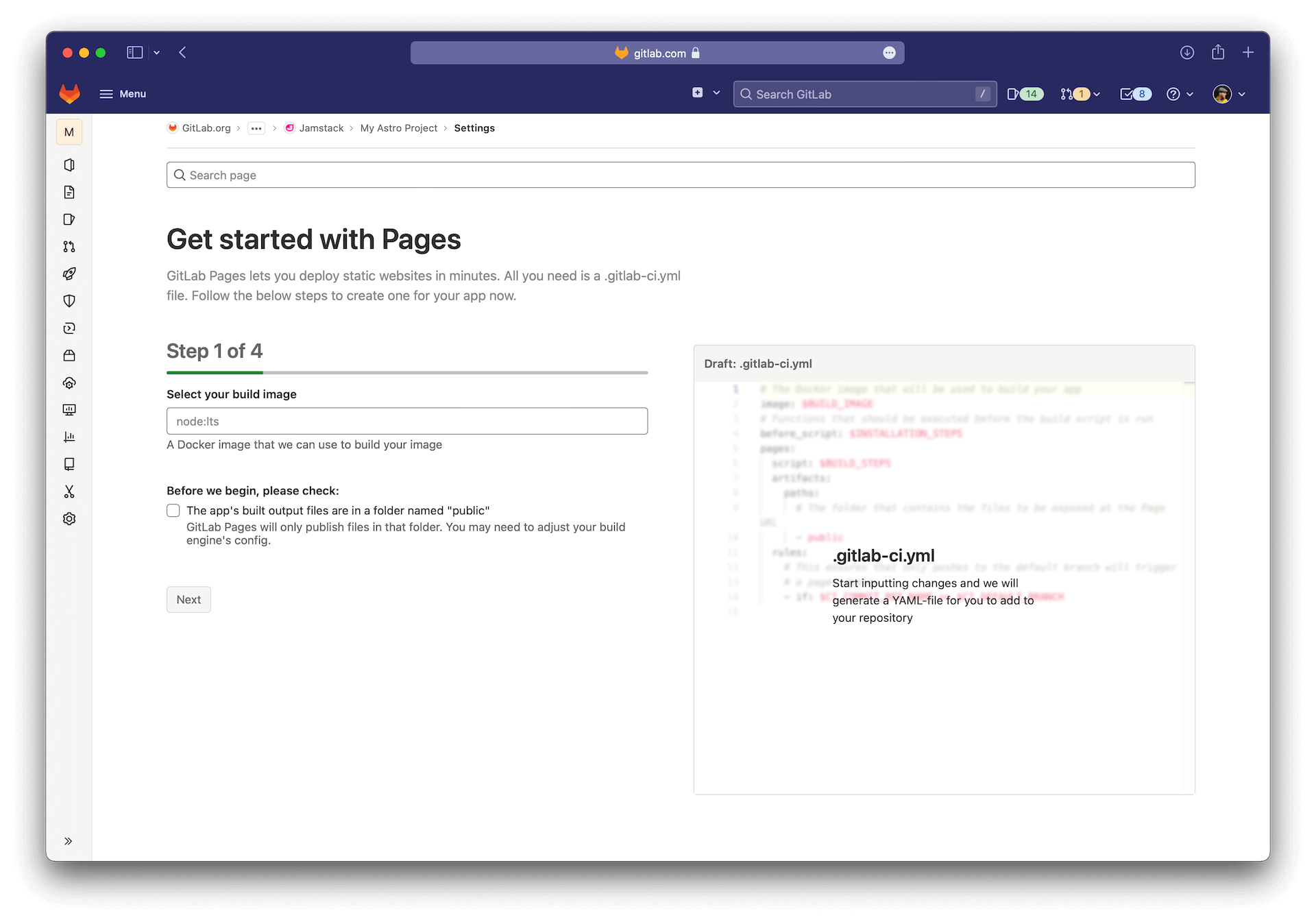
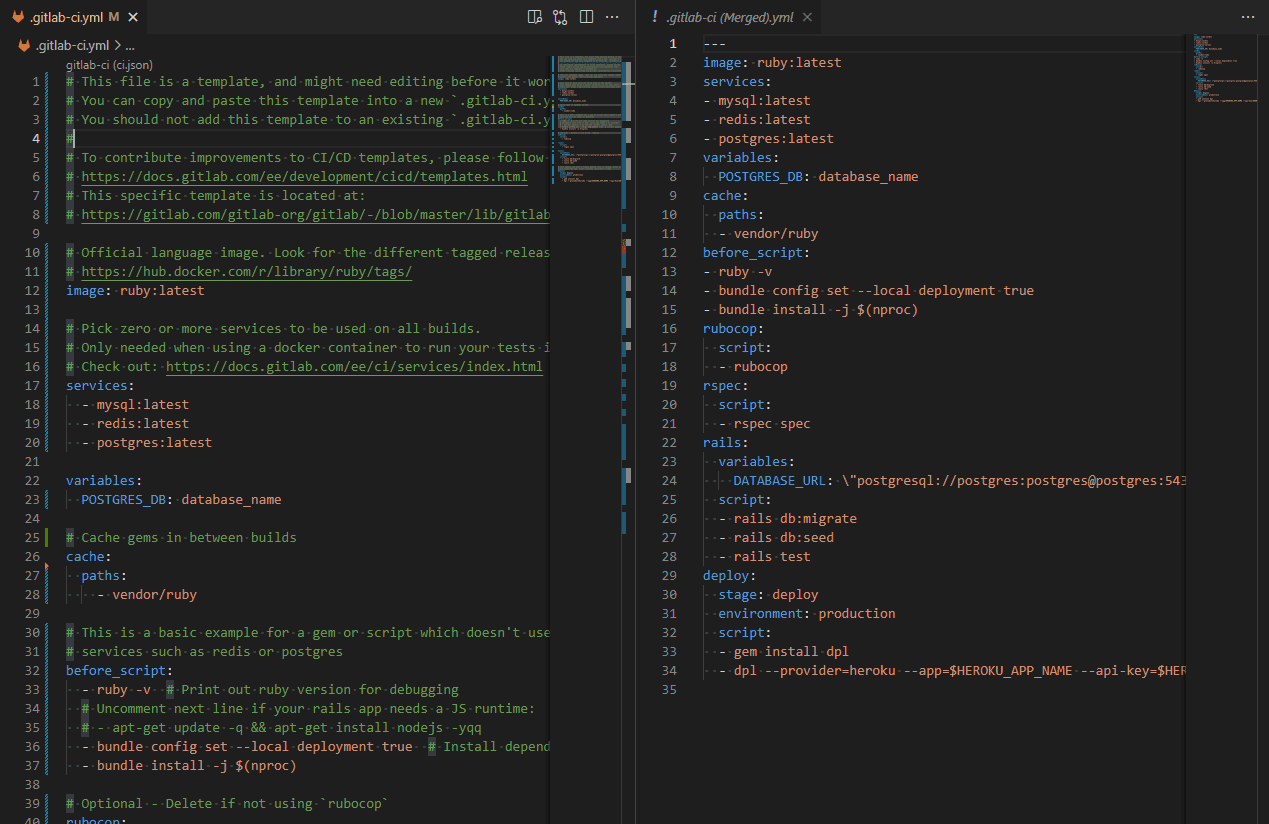
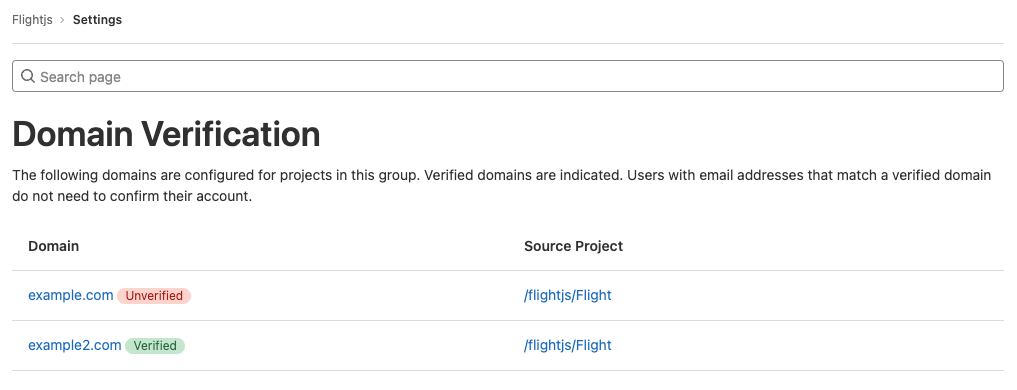

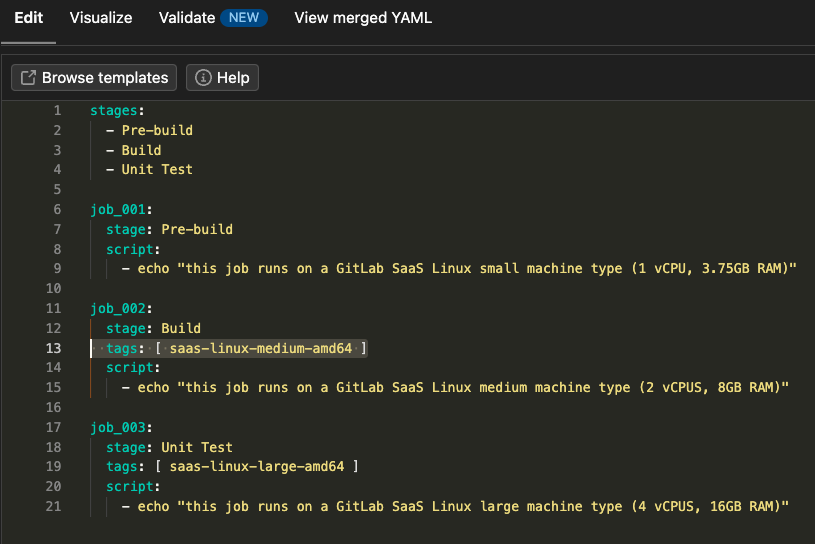

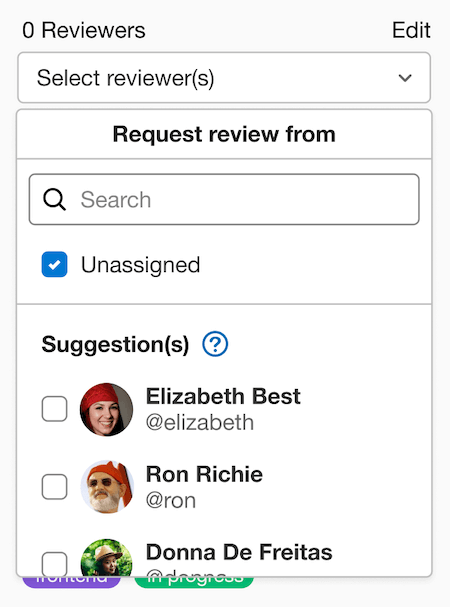
















We want to hear from you
Enjoyed reading this blog post or have questions or feedback? Share your thoughts by creating a new topic in the GitLab community forum.
Share your feedback